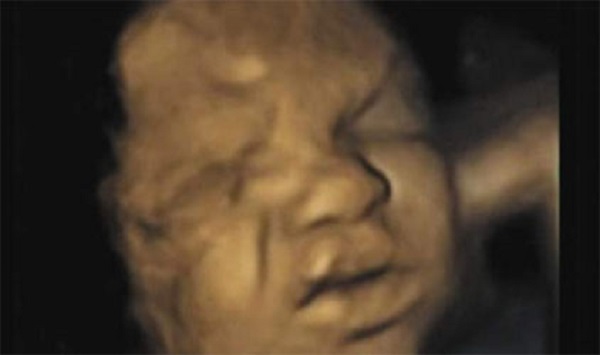The U.S. House of Representatives is scheduled to vote for the Pain-Capable Unborn Child Protection Act (H.R. 36) on January 22, the 42nd anniversary of Roe. v. Wade. Legislation protecting pain-capable babies has passed in nearly a dozen U.S. states and has the support of 84% of Americans.
As LifeNews previously reported, scientific research shows that the biological equipment necessary for a human person to feel pain is present no later than 20 weeks after fertilization; and researchers found that unborn children react to pain by recoiling, which is the same way adult humans react to pain. In fact, during surgery on these tiny humans, fetal surgeons found that anesthesia was necessary to decrease their reaction to stress hormones.
 Nevertheless, the American College of Obstetricians and Gynecologists (ACOG), Planned Parenthood and NARAL stand against the legislation. This is because they claim that most abortions after five months occur because the life of the mother is endangered or the unborn child suffers from a severe or untreatable fetal abnormality.
Nevertheless, the American College of Obstetricians and Gynecologists (ACOG), Planned Parenthood and NARAL stand against the legislation. This is because they claim that most abortions after five months occur because the life of the mother is endangered or the unborn child suffers from a severe or untreatable fetal abnormality.
However, today the Charlotte Lozier Institute (CLI), the education and research arm of the Susan B. Anthony List, released a paper authored by Elizabeth Ann M. Johnson, M.D., which explains why this claim is false.
SIGN THE PETITION! Congress Must Ban Abortions Because Babies Feel Intense Pain
Dr. Johnson’s findings reveal that the reason the majority of women seek late-term abortions is not because of fetal abnormalities or health concern, but because of social reasons. Dr. Johnson conducted her analysis at the University of California-San Francisco and studied patient interviews and questionnaires of women who’ve had late abortions.
Chuck Donovan, the president of the Charlotte Lozier Institute said, “The conditions under which women seek and obtain late-term abortions are primarily social in nature. Each of them – higher rates of unemployment, relationship instability, lack of financial means – are not remediated by late-term abortion or by abortion generally. In fact, to the degree that late-term abortions are exceedingly expensive and medically harmful to women, these factors may be exacerbated by their decision to proceed with ending their pregnancies.”
He concludes, “Advocates for life can and should act justly to protect these infants from destruction, but alongside that disposition must come a renewed determination to provide alternatives that offer hope and promote economic and social healing.”
Unfortunately, the White House has already issued a veto threat indicating that President Obama would veto a bill to ban late-term abortions after 20 weeks of pregnancy because unborn children feel intense pain in abortions.







